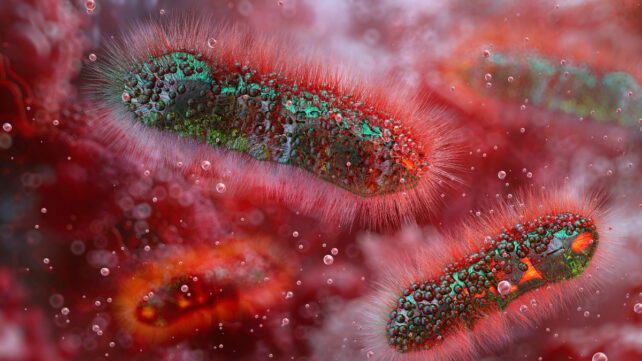A new, small study suggests children with autism, ADHD, and anorexia share similarly disrupted gut microbiomes, which, by some measures, have more in common with each other than with their healthy, neurotypical peers.
Led by researchers from Comenius University in Slovakia, the study used stool samples to assess the gut microbiomes of 117 children.
The exploratory study included 30 boys with autism spectrum disorder (ASD), 21 girls with anorexia nervosa, and 14 children with attention deficit hyperactivity disorder (ADHD). The remaining samples were from age- and sex-matched healthy and neurotypical children, providing a control group.
Related: The People in Your Life Are Sharing Their Gut Microbes With You
The ratio of two dominant groups of microbes in the human gut, Bacteroidetes to Firmicutes, was higher across all three disorder groups than was typically seen in the control group.
"This increase in Bacteroidetes, especially in ASD, and a decrease in Firmicutes, particularly in ADHD and AN, corresponds with findings in inflammatory diseases, where altered ratios have been linked to glucose metabolism, inflammation, and satiety regulation," the authors write.
In the ADHD and autism groups, the richness of microbiome species was lower than usual. The researchers measured higher levels of Escherichia, microbes that typically hang out in our body without causing damage, yet cause serious infections when elevated in numbers or migrate out of place.
Desulfovibrio bacteria were more abundant in children with ADHD and girls with anorexia nervosa. These bacteria are known for living in low-nutrient, waterlogged environments, where they reduce sulfate as a source of energy. They also commonly reside in the human gut, but at low levels, potentially causing disease when they grow out of balance.
Meanwhile, children with ADHD and girls with anorexia nervosa both harbored fewer Faecalibacterium than their peers. This bacterium is usually quite abundant in healthy human microbiomes, and lower levels have been associated with inflammatory conditions like irritable bowel disease, colorectal cancer, and depression.
"Notably, certain resemblances were observed in the microbiotic taxa abundances across all patient cohorts, underscoring the conceivable influence of gut microbiota composition on the behavioral manifestations of mental disorders," the authors conclude.
We know diet has a direct impact on the diversity and species that make up our gut microbiomes: less variety on the menu typically means less variety in our gut flora.

Picky, slow, and restrictive or excessive eating are common among children with autism and ADHD due to sensory issues, and deliberate food restriction is a defining feature of anorexia nervosa. Similarities in the gut microbiomes of these children may arise from their limited diets. Changes to the gut microbiome can also exacerbate mental health problems, and these, in turn, may impact the gut, further contributing to a positive-feedback loop.
The authors note their plans for this research were disrupted by the COVID-19 pandemic, significantly limiting data collection and resulting in the small sample size here. They also note that some children were not keen on cooperating with their parents in collecting stool samples, further limiting the data.
"Given these limitations, our findings should be interpreted with caution," they write. It's unclear, for instance, whether these gut profiles contribute to the children's conditions, are a result of them, or both.
They hope future studies can replicate their methods with a much larger sample size to gather more reliable profiles of gut microbiomes in children with these disorders, which could one day help with diagnosis and treatment.
The research was published in Neuroscience.

